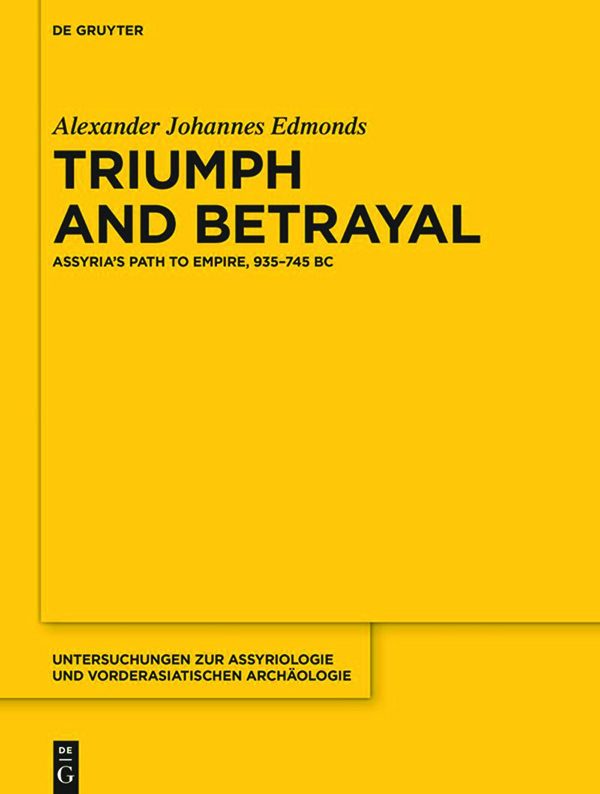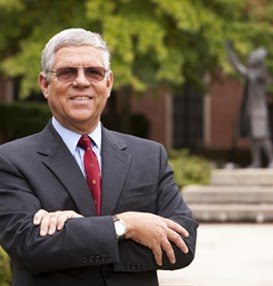
In this episode of What in the Word?, Malcolm Foley joins Kirk E. Miller to discuss the challenging passage of 1 Timothy 6:6–10. Together, they unpack Paul’s warnings about the desire for wealth and consider how the love of money is described as a root of all kinds of evil.
Dr. Foley—pastor, scholar, and author—helps us think biblically about wealth, contentment, and how the church can resist the cultural pull toward materialism.
Follow the show on YouTube, Spotify, Apple Podcasts, and more.
What you’ll find
Special offers

A Free Book Just for You
Logos has given away over 5 million free books, empowering Christians globally to study deeply. Get a shiny, new free book every month!
Claim your free book

Exclusive Lexham Press Tough Texts Bundle
Have more questions about the Bible? Get the 10-volume Lexham Press Tough Texts Bundle designed exclusively for fans of What in the Word?
Get the bundle

The Future of Bible Study is Here
Unlock in-depth study of God’s Word, plus exclusive discounts, free books, and more starting as low as $9.99/month—only with the new Logos.
Start a free trial
Connect with us
Ready to increase biblical literacy? Like and share. To go the extra mile, leave us a review on your preferred platform.
Subscribe to get future episodes. (Bonus: We’ll send you a discount to use on your first purchase.)
Thanks for subscribing to Word by Word!
Use code WORDBYWORD to save 10% on your first order.
Episode guest: Malcolm Foley
Dr. Malcolm Foley holds a degree in religious studies with a second major in finance and a minor in classics from Washington University in St. Louis. He completed a MDiv at Yale Divinity School, focusing on the theology of the early and medieval church. He has a PhD in Religion from Baylor. He pastors Mosaic Waco in Waco, TX.
Malcom is author of Anti-Greed Gospel: Why the Love of Money Is the Root of Racism and How the Church Can Create a New Way Forward (Brazos, 2025).
Episode synopsis
What’s the issue?
Kirk E. Miller and Malcolm Foley discuss 1 Timothy 6:9, where Paul warns that “those who desire to be rich fall into temptation.” Together, they explore whether wanting wealth is inherently sinful, how this passage connects with the broader teaching of Scripture, and what practical implications it carries for believers today.
Kirk and Malcolm note that the difficulty with this passage is not necessarily interpretive—it’s relatively straightforward in meaning—but rather in its application. Wealth is something many people desire. The discomfort then comes from the text challenging common assumptions and practices, especially in affluent cultures.
Context of 1 Timothy 6
The discussion begins by setting the scene: Paul writes to Timothy to warn against various pitfalls in church leadership, particularly the misuse of godliness as a path to personal gain (1 Tim 6:5). In contrast, Paul stresses that “godliness with contentment is great gain” (6:6), urging Christians to focus on Christian maturity rather than material prosperity. The reminder that “we brought nothing into the world and can take nothing out” (6:7) reinforces the theme of radical contentment.
Kirk points out that the passage ties into broader concerns about false teaching at both the beginning and end of 1 Timothy, framing the epistle within a consistent warning against those who distort Christianity for selfish gain. For instance, see Robert Yarbrough’s chart showing how the end of 1 Timothy recalls matters addressed at the beginning:
| Opening (1 Tim 1:3–20) | Closing (1 Tim 6:2–21) |
| Charge to stay at Ephesus (1:3) | Charge to teach and uphold the faith (6:2) |
| False teachers and commendation of love (1:4–7) | False teachers and commendation of godliness (6:3–6) |
| Proper use of the OT law (1:8–10) | Proper regard for money (6:7–10; see also vv. 17–19) |
| Testimony: Paul was saved by Christ, not law (1:11–16) | Appeal: Timothy should lay hold of eternal life in Christ, who also made the good confession (6:11–15) |
| Doxology (1:17) | Doxology (6:15–16) |
| Application: Charge to Timothy confirmed, with warning regarding those who have rejected the faith (1:18–20) | Application: Charge confirmed to the wealthy under Timothy’s leadership and to Timothy himself, with warning regarding those who have rejected the faith (6:17–19)1 |
Comparing Paul’s teaching with Jesus’s
Paul’s warning against desire for wealth in 1 Timothy 6 reflects Jesus’s teachings in the gospel. In the gospels, Jesus often present strong warnings against materialism:
- Instead of laying up treasure on earth, we are to accumulate treasure in heaven (Matt 6:19–21) by selling what we have to provide for the needy (Luke 11:33–34).
- Jesus warns that life does not consist of material possessions (Luke 12:15). Instead, we pray for our daily bread (Luke 11:3).
- Consider also the parable of the sower, where the “cares and riches” of life choke the word (Mark 4:18–19).
History of interpretation
Malcolm explains that early Christian theologians such as Basil of Caesarea and others from monastic backgrounds interpreted these warnings strictly, often advocating renunciation of wealth. Over time, especially post-Constantine, Western Christianity saw increasing attempts to justify wealth. While the biblical message about wealth remained clear, its application became more diluted as Christians accumulated power and possessions.
Malcolm points out that wealth often removes the sense of dependence on God, which Scripture consistently frames as essential to faithfulness.
Paul’s warning in 1 Timothy 6:9
The text emphasizes that those who “desire to be rich” don’t merely risk temptation but fall into it. The word “fall” indicates an actual, not just potential, experience of something—similar to the man who “fell among robbers” in Luke 10:30.
Three progressively worsening dangers accompany this fall:
- Temptation
- A snare (trap)
- Senseless and harmful desires
These ultimately plunge people into “ruin and destruction.”
Thus, the passage does not present a cautious “if you want to be rich, that’s fine; just be careful of its temptation” tone, but rather a strong “do not desire to be rich” warning.
What does it mean to be rich?
Of course, one can easily lax this warning based on how they define what it means to be “rich.” So what does Paul mean by “rich”?
Importantly, Paul frames this desire for wealth in contrast to contentment (1 Tim 6:6–8). And to be content, Paul says, is to be satisfied with mere “food and clothing” (1 Tim 6:8). The alternative is to desire more than this, to lack contentment and desire wealth.
The love of money (1 Tim 6:10)
Verse 10—”the love of money is a root of all kinds of evil”—is one of the most frequently quoted verses in the Bible. Malcolm notes that although there is a debate over whether it should be “the root of all evil” or “a root of all kinds of evil,” the context supports the idea that love of money leads to a vast range of sins.
Malcolm stresses that love of money functions as an alternative “master” in competition with God—echoing Jesus’s teaching that no one can serve both God and mammon (Matt 6:24).
What about wealthy individuals in Scripture?
Some might argue that examples like Abraham and Job complicate this strict warning against wealth. Malcolm clarifies:
- The issue is not wealth itself but the pursuit and hoarding of it. Abraham and Job were wealthy, but they did not pursue wealth as their goal.
- Additionally, Scripture critiques kings like Solomon who amassed excessive wealth against God’s commands (see Deut 17:17).
- Importantly, Paul acknowledges the reality of wealthy Christians later in 1 Timothy 6:17–19, providing specific instructions for them rather than condemning their existence.
Paul’s instructions to the rich (1 Tim 6:17–19)
Paul instructs the rich to:
- Avoid pride
- Avoid setting their hope on wealth
- Set their hope on God, who “richly provides us with everything to enjoy”
- Be rich in good works
- Be generous and willing to share
- Store up treasures for the future (treasures in heaven)
The play on words throughout are striking: true riches lie not in material possessions but God who richly provides and enables us to be rich in good works, like generosity.
Practical application for Christians & churches
Malcolm urges believers to reframe their thinking around wealth:
- Regularly ask: “What do I actually need?”
- Aim to match or exceed spending on oneself with giving to others
- Cultivate habits of sharing rather than hoarding
- Resist the cultural narrative of self-sufficiency and embrace Gospel-centered dependence
Local churches should foster two cultures:
- Asking for help: Reducing stigma around financial need.
- Proactive generosity: Viewing all possessions as tools for blessing others.
Kirk and Malcolm tie this to the New Testament’s description of the early Christian communities in which members sold their possessions and contributed to the needs of others (e.g., Acts 2:42–47; 4:32–37; 6:1–7; 2 Cor 8; 1 Tim 5:3–16).
The Gospel impulse for generosity
Ultimately, resisting the desire to be rich and embracing radical generosity is rooted in the gospel: Jesus, though rich, became poor so believers could become rich in him (2 Cor 8:9). Christ shares his very throne with his people (Rev 3:21). Because Christ shares everything with us, we are liberated to share freely with others.
Malcolm emphasizes that the generosity of the gospel fundamentally reorients believers’ relationships with their possessions.
Logos values thoughtful and engaging discussions on important biblical topics. However, the views and interpretations presented in this episode are those of the individuals speaking and do not necessarily reflect the official position of Logos. We recognize that Christians may hold different perspectives on this passage, and we welcome diverse engagement and respectful dialogue.
Related resources for further study
The Anti-Greed Gospel: Why the Love of Money Is the Root of Racism and How the Church Can Create a New Way Forward
Save $9.90 (45%)
Price: $12.09
-->Regular price: $12.09
On Social Justice (Popular Patristics Series)
Save $0.55 (5%)
Price: $10.44
-->Regular price: $10.99
Neither Poverty nor Riches: A Biblical Theology of Possessions (New Studies in Biblical Theology, vol. 7 | NSBT)
Save $1.00 (5%)
Price: $18.99
-->Regular price: $19.99
Money, Possessions, and Eternity
Save $0.70 (5%)
Price: $13.29
-->Regular price: $13.99
Sermon on the Mount (The Story of God Bible Commentary | SGBC)
Save $1.50 (5%)
Price: $28.49
-->Regular price: $29.99
The Letters to Timothy and Titus (Pillar New Testament Commentary | PNTC)
Save $3.10 (5%)
Price: $58.89
-->Regular price: $61.99
The Pastoral Epistles (The New International Greek Testament Commentary | NIGTC)
Save $2.70 (5%)
Price: $51.30
-->Regular price: $54.00
1–2 Timothy and Titus: Evangelical Biblical Theology Commentary (EBTC)
Save $2.25 (5%)
Price: $42.74
-->Regular price: $44.99

 2 weeks ago
24
2 weeks ago
24










 English (US) ·
English (US) ·